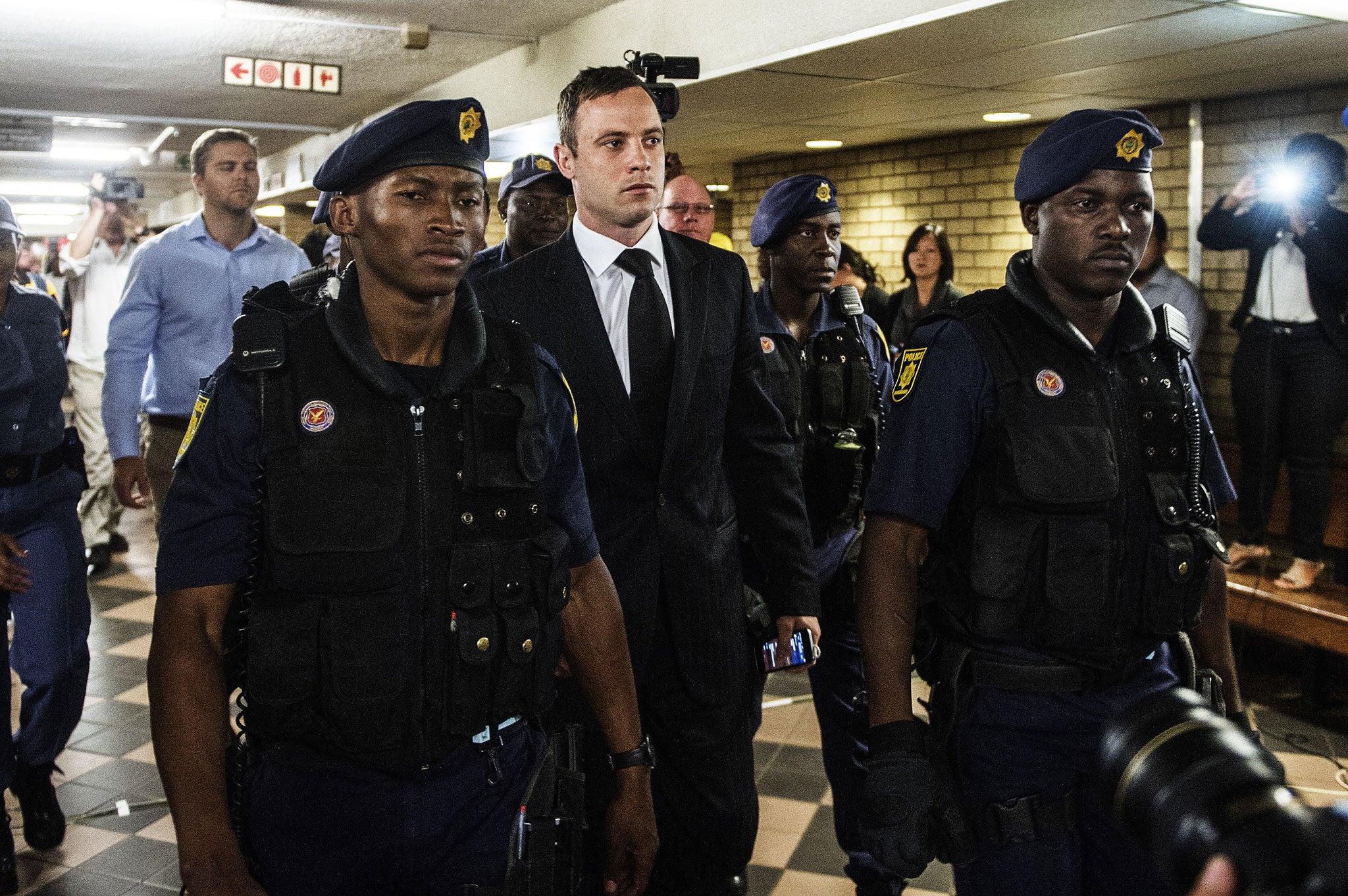Books of the year 2014: Sport, from Oscar Pistorius to Kevin Pietersen's autobiography
John Carlin's The Trials of Oscar Pistorius: Chase Your Shadow contends that, in these post-Mandela days the exceedingly complex Pistorius is a more telling and accurate symbol of South Africa even than Madiba himself

Though it's perfectly possible to have a great sports book that's of interest only to certified sports nuts, the very best of them transcend the genre to convey wider truths. Anna Krien's Night Games: Sex, Power and a Journey into the Dark Heart of Sport (Yellow Jersey, £12.99) was the deserving winner of this year's William Hill Sports Book of the Year award even though it's hardly a sports book at all. Beginning with the rape trial of an Australian rules footballer, Krien embarks on a deeply troubling exploration of the male psyche as revealed in the caveman world of team sports. Though not exactly Christmassy it's a terrific piece of work that needs to be read by those on both sides of what is still, in so many ways, the Battle of the Sexes.
The Trials of Oscar Pistorius: Chase Your Shadow by John Carlin (Atlantic Books, £12.99) has a similarly wider remit than the recent court case arising from the Blade Runner's killing of his girlfriend, Reeva Steenkamp. In these post-Mandela days the exceedingly complex Pistorius, Carlin contends, is a more telling and accurate symbol of South Africa even than Madiba himself.
In pictures: Books of the year 2014
Show all 18There's a strong sense of society at large, too, in The Game of Our Lives: The Meaning and Making of English Football (Viking, £20). David Goldblatt, whose magisterial The Ball is Round established him as football's nonpareil historian, narrows his focus on to the domestic game – where we are and how we got here, and football's place in society. Floodlights and Touchlines: A History of Spectator Sport (Bloomsbury, £25), widens that idea out to include all the other sports which have gripped us over the decades and centuries. It's an epically comprehensive account of the sporting experience, from literal gladiators to the modern metaphorical variety.
The highest-profile sports books in any given year are usually the memoirs, and the one that's made most waves in 2014 has been Kevin Pietersen's KP: The Autobiography (Sphere, £20). It's self-serving, and he doesn't seem especially likable, but it's also a compelling glimpse into the pressures, strains – and egos – that make sport such a splendidly superior soap opera. A mention, too, for Sachin Tendulkar's Playing It My Way (Hodder & Stoughton, £25), the very readable autobiography of one of the greatest cricketers who ever played the game.
Cycling literature is beginning to rival cricket in quantity and quality, and away from the higher-profile offerings two stood out. In Faster: The Obsession, Science and Luck Behind the World's Fastest Cyclists (Bloomsbury, £12.99), Michael Hutchinson, a former Great Britain time-triallist, gives a fascinating account of the lengths to which he went attempting to shave fractions of a second off his times. It's a revelatory look at what makes sportspeople tick.
And in Legends of the Tour (Head of Zeus, £14.99), the writer and illustrator Jan Cleijne reinvents the history of the Tour de France as a graphic novel. It brilliantly, often darkly, conveys the highs and lows of the greatest sporting event in the world.
Competing in the Tour de France requires legendarily vast stores of sporting bravery. But for a story of extraordinary courage, both in and outside the sporting world, I give you Gareth Thomas's Proud (Ebury Press, £20), market leader of what is still a micro-genre: the sporting coming-out memoir. The way the world of sport and beyond stood by the Wales and Lions rugby union giant after he announced that he was gay gave encouragement that the modern world, for all its meannness and prejudices, is capable of progress. It's another sporting book that transcends sport, and Thomas should be loudly and gloriously celebrated for writing it.
Subscribe to Independent Premium to bookmark this article
Want to bookmark your favourite articles and stories to read or reference later? Start your Independent Premium subscription today.

Join our commenting forum
Join thought-provoking conversations, follow other Independent readers and see their replies